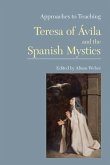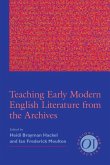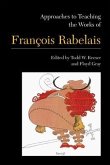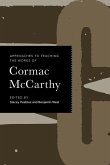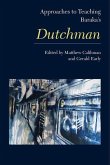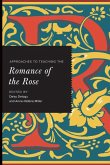"Provides guidance for teachers on old and new perspectives on Cabeza de Vaca's works, including literary topoi, Chicano literature, postcolonial readings, queer readings, race, adaptations, law and its presence in the texts, food studies, the archeological record, and digital humanities. Includes bibliographical materials for instructors and students"--
Hinweis: Dieser Artikel kann nur an eine deutsche Lieferadresse ausgeliefert werden.
Hinweis: Dieser Artikel kann nur an eine deutsche Lieferadresse ausgeliefert werden.


